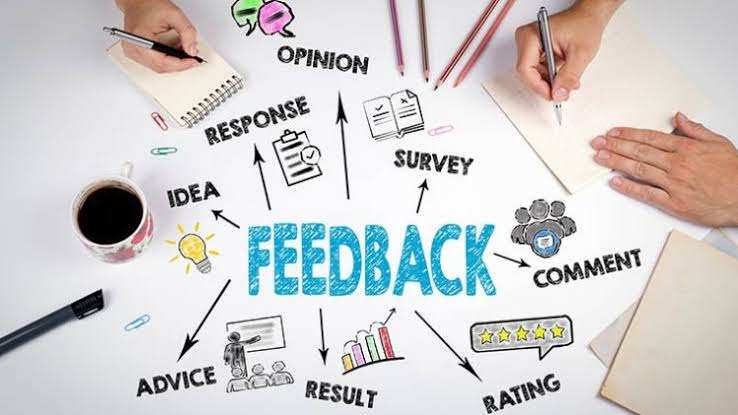LET US ASK THE QUESTION
In this age of constant disruptions, If what you do, (whether it is a job, service or products offering) does not excite, engage and inspire your users then your level of success will be limited and your ability to continue in that job or business for a long time is doubtful. If what you do is lacking in any of the above, then it is time to spice up your offerings. The social media in Nigeria was inundated with the activities of the recently concluded competitive reality show to the extent that it has limited the “trending” of movies from well-known celebrities. The fans of the shows were so energetic and engaged to the extent that matters of national interest had to take the back seat. While the show was almost everything to its fan, it is nevertheless an irritation to the “pious” and the “serious”.
To begin with, I am not a fan of the Big Brother reality show. I do not really care about what happens in the house because the entirety of the show does not align with my values. However, looking at the intensity that surrounds the spectacle that has endeared it to millions all over the country, I concluded it must offer insights that could be of benefits to individuals and organisations regardless of several biases against it. Therefore, raising in my mind some pertinent questions: What makes the reality shows have so many followership? What makes the excited fans of about 50millions part with their money and send SMS at a cost to vote for their favorite persons when it is evident that they have nothing tangible to gain from the winner? What endears these shows to the public that they would rather vote at the shows but not at the national elections? Why does the program gain more popularity than our so-called “serious” and “educational” stuff, remember it was always a struggle to get a handful of people interested in such?
What lessons do some of this reality shows hold for our business or performance model?
LET’S LOOK AT OUR BIASES
The argument of the conservatives and the very “serious” people is that the program is shallow and is meant for shallow thinking people. The question is what is the yardstick for measuring this shallowness? Are all the millions of people attracted to the show shallow people or could it be that the program offers something that we rarely get in this our “serious” world? The Big Brother Naija, formerly known as Big Brother Nigeria, is a part of the Big Brother International Franchise which was established in the Netherlands in 1999 by John de Mol Jr. The name was inspired by the Big Brother from George Orwell‘s novel Nineteen Eighty-Four. To begin, the Big Brother Show, an audition is conducted in which less than 30 contestants are selected and housed in a dedicated and secluded building for about 100days. The contestants known as “housemates” or “House Guests” are made to live together during which they are under surveillance by live television cameras and personal audio microphones. As the days go by, there are tasks for the housemates and eviction rounds, and at the end of the show, the winner who avoids the evictions and secures highest votes takes home a cash prize of NGN60million an equivalent of $171,428.57.
LESSONS FROM BIG BROTHER
What lessons do the shows hold for personal development and businesses, and how can we apply this to create a model that brings turnaround performance?

Photo Credit: Google Images
- Make your offerings Fun: what makes viewers so engrossed with the Big Brother show and other reality shows is fun. How can you introduce Fun in your line of business? Can the practice of medicine be fun? What about teaching mathematics, physics and other “boring” courses? A critical insight from this reality show is that the world is too serious; therefore, it is in search of Fun. If you strive to make your services, product and job user-friendly, then you will command the required attention. A recent study of 2,000 employees by Professor Sir Cary Cooper and his team revealed that injecting Fun into the workplace lowers the incidence of absenteeism, increases productivity and reduces stress. The world is stress-laden why should your offerings add more to it. If you don’t think Fun in your offerings pays you may need to think again. The Cooper/Bright HR study showed that 79% of graduates believe Fun at work is essential. Forty-four per cent believe it encourages a stronger work ethic. Dave Hemsath, the author of 301 Ways To Have Fun At Work, sees Fun as the most critical trait of a highly effective and successful organisation and that companies with “fun policies” have reported higher job satisfaction and increased employee loyalty as significant benefits from a fun atmosphere.
- Talents are not Enough: a careful examination of some of these shows reveal that the winners are not necessarily the most talented. Most people with incredible abilities do not end up winning the coveted price. What do fans look for? Likeability, relatability and passion. How well does your customer relate with your products and your persons? Do they see you as a likeable personality or does your personality, style and approach drive them away? If you are not an amiable personality, it will be tough to win customers loyalty and attract/retain the best talents who will help your business to grow. So, the first set of rules is you must live beyond your natural abilities and spice your offerings with the ingredients of likeability, passion and attractiveness.
- Embrace Uniqueness and Authenticity with Responsibility: while the world is full of copycats, people want something different. They want uniqueness – they want your products and services to communicate originality. When Tacha one of the housemates was evicted, the whole social media in Nigeria was engulfed, and with people calling her all sorts of names, though she tried to be herself, her authenticity failed the responsibility test, and she was thrown out of the Big Brother House. Success comes when our authenticity and uniqueness is met with responsibilities. No one should take the rule for granted in the name of “I am just trying to be myself”. Tacha motto of “Do no harm but take no mess” was wrongly interpreted by her because it led her to gross violation of the house rules.

- Build a Community of Users: one of the significant features of the reality show is the power of human interactions. There is no denial of the fact that reality shows have succeeded in building an active community. I consider this a major advantage over most of our regular business. In this reality shows, members share their stories, which most times contain their pains, challenges, vision and aspiration. In this community, we see tears, joys, sadness, failures, triumph and celebrations. It is essential to organise your business in a way that it has to build its community. Building a community for your business has never been more critical, especially as the life span of the loyalty of today’s customers continue to dwindle.
- Let Users Define their Value: you are doing what you are doing currently because you want to create or add value. However, such value is better defined by the user.Remember that the value we create is only useful if it helps the users to get their job done.We get it wrong when we claim to know what constitutes “value” to customers without any deep interactions with them. The organisers of these reality shows get energy into the shows, the “vote system” where the viewers determine who stay and who goes, having a voice is a great value to these users. Do your users have a voice in your value creation system
- Please keep it simple and inspiring: we live in a world inundated with different messages about services and products. Many times, customers are completely overwhelmed by these options, and so the way to win in this “shark-infested water” of competitiveness is to keep your message simple and inspiring because users want it Fun and straightforward. They want things that show real-life issues. Because the BBN show is exciting, simple, inspiring, suspense-filled, the viewers have no problem sponsoring it.
- Be Passionate about your Offerings: if what you have to offer is good enough then you will be passionate about it. I have heard several judges talking to contestants of some of the reality shows like the Voice, X-Factor or American Got Talent about their passion or lack of it. If your users fail to see the passion in your offerings, the probability of liking it is very slim. As an entrepreneur or business leader, you need to be genuinely interested in your occupation.

- Strong Feedback Strong Human Interactions: one of the things we see at the reality show is constant feedback to the contestants. Most times, the input is factual and brutal, but contestant with a great attitude to learn from the feedback and use it reposition themselves. Most businesses refrain from creating a platform for honest feedback. Most of the customers’ feedback is highly skewed towards forcing the customer to say something positive about the company products and services. This is a wrong approach; a suitable feedback mechanism should focus more on the negative feedback because it is such that could make you better in your delivery.
IN CONCLUSION
One of the hallmarks of great leaders is the ability to learn from unlikely sources. Even if you do not like the BBN show like me, it is not wrong to learn from what has worked, and that is still working to serve your users better.











